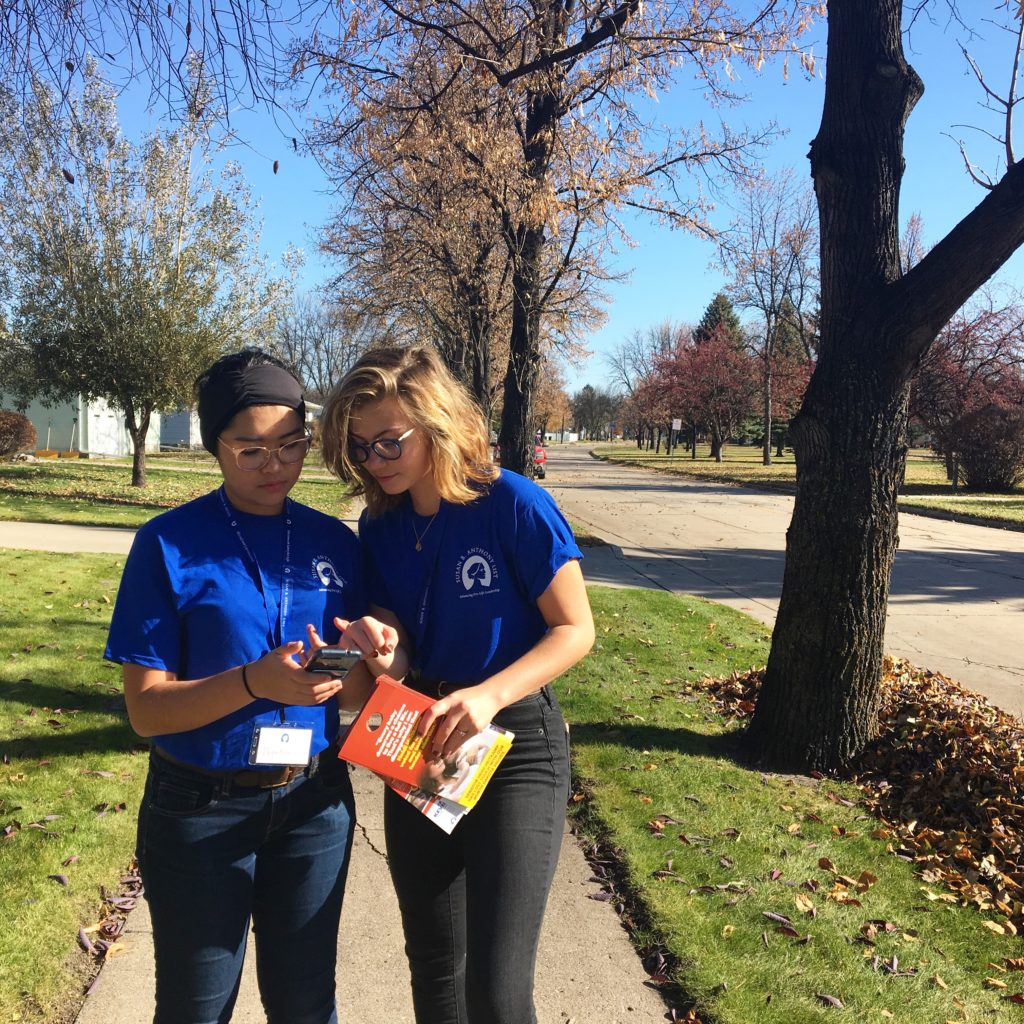
Mallory Quigley | Courtesy
Over fall break, the Susan B. Anthony List, a nonprofit pro-life organization, sent 22 Hillsdale students to North Dakota to canvass for the pro-life movement.
The students divided into four teams and visited 12,651 houses in three days. The teams spread throughout North Dakota, canvassing in Fargo, Grand Forks, and along the Canadian border.
Sophomore Bryce Asberg, policy director for Hillsdale College for Life, said the team’s primary focus was informing voters on North Dakota Sen. Heidi Heitkamp’s “extremist” abortion views. The team focused on rallying support for Kevin Cramer, her Republican opponent.
“She voted in favor of taxpayer funding for late-term abortion and against the ban of late-term abortion in the fifth month of pregnancy, where the child can feel pain,” Asberg said. “That makes her more extreme than 70 percent of the country on the issue of abortion. North Dakota is a pro-life state, and they are not being represented by a pro-life senator.”
The Susan B. Anthony List, which is the nation’s largest pro-life political organization, works to elect candidates into federal office that will enact pro-life policies. In this year alone, SBA volunteers have knocked on over 2 million doors.
Mallory Quigley, vice president of communications for SBA, said the state of North Dakota is crucial for having a pro-life majority in the Senate.
“We’ve known some really excellent Hillsdale College students who were past interns,” Quigley said. “We knew that they could rally a team of students who would be interested in heading out to one of our target states during their fall break.”
Heitkamp has served in the Senate for the last six years. According to Asberg, Heitkamp has done a good job of protecting her status as a moderate. Freshman David Hunter said that many of the voters were unaware of her extreme stance on abortion.
“There was one gentleman I talked to who was a Heitkamp voter. He didn’t even know that Heitkamp supported taxpayer-funded abortion,” Hunter said. “Before I left, I asked him if he still was going to vote for senator Heitkamp. He said he wasn’t sure anymore.”
Quigley said the reason for employing college-aged students is because younger faces typically have the most impact on voters.
“We’ve found that our young canvassers have some of the greatest success,” Quigley said. “People are more inclined to open the door to a younger person.”
Freshman Penny Heipel agreed.
“It’s really easy to get a pamphlet in the mail and throw it away, but when you actually talk to someone you’re hearing their words and taking it in from them personally,” Heipel said. “It probably made them think a little harder.”
Students walked an average of 15 miles each day. Sophomore Megan Kerr, previous canvassing intern for SBA in Indiana, said that these walks allow for moments of reflection.
“It is so important when you are out there to be praying not just for you, but for these voters to be receptive to the truth,” Kerr said. “It is God working through students and anyone involved in canvassing to go out and do this work for him and his creation, and ultimately, to glorify him.”
Though the students were exhausted by the end of the trip, Asberg said that their friendships were strengthened.
“Canvassing is a tough thing, but it can be a really rewarding. There’s time for great conversation from serious to frivolous things and great team building happens there,” Asberg said. “A lot of people walked away from this trip encouraged and ready to do more in the future for the cause.”
Quigley said she hopes students left with new knowledge, in addition to helping the cause.
“I hope they that they walk away with the profound understanding of the hard work it takes to get someone elected,” Quigley said. “Politics is very personal, and it really makes a difference to go house to house, voter to voter. It’s a lot of work but it’s very effective.”
Asberg said that he finds the least glamorous tasks are the most worth doing.
“How we treat the most vulnerable says a lot about who we are as people, and right now our record isn’t very good,” he said.

